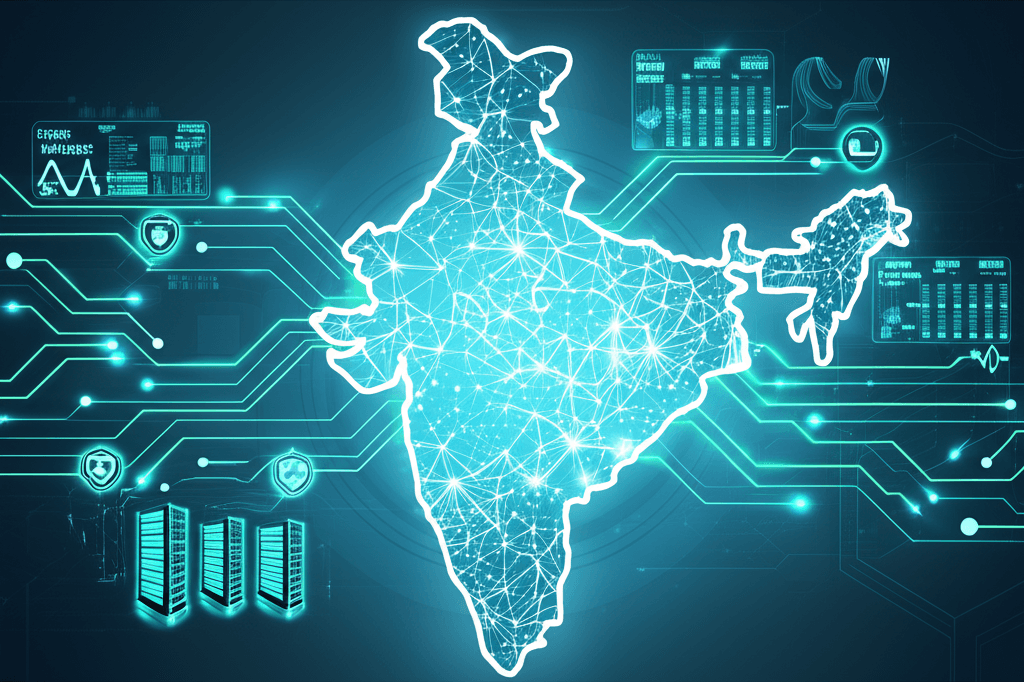India Boosts AI Preparedness: Ministries Detail ₹10,300 Crore Strategic Plan
India's ₹10,300 crore AI mission: Forging national progress, enhancing security, and transforming public services amidst key challenges.
June 27, 2025

A high-level parliamentary panel has received briefings from key government ministries, including Home, Defence, Power, and Communications and Information Technology, highlighting India's strategic preparedness to harness the burgeoning field of artificial intelligence. Top officials detailed a coordinated, multi-sectoral approach to not only foster AI-led development but also to build robust safeguards against its potential misuse. The discussions underscored the government's recognition of AI as a pivotal technology for national progress, with significant applications planned across various domains to enhance efficiency, security, and public service delivery.
At the heart of India's AI ambitions is the IndiaAI Mission, a comprehensive national program approved in March 2024 with an outlay of over ₹10,300 crore.[1][2] Spearheaded by the Ministry of Electronics and Information Technology (MeitY), the mission aims to create a robust ecosystem for AI by democratizing computing access, improving data quality, developing indigenous AI capabilities, and attracting top talent.[1][3][4] A significant component of this strategy involves a massive expansion of the nation's computing infrastructure, with the government announcing the addition of thousands of new GPUs to support the training of large-scale AI models.[1] This focus on building foundational capabilities is designed to empower startups, researchers, and public sector organizations, ensuring that the benefits of AI are widely distributed. The mission's mantra, "Make AI in India and Make AI work for India," reflects a dual focus on indigenous development and socially impactful application.[1]
The government's strategy extends to deploying AI in critical sectors to address societal needs and improve governance.[5][3] Union ministries detailed their specific roadmaps to the parliamentary committee, which is chaired by BJP MP Nishikant Dubey.[6][7] The defence sector, for instance, is already utilizing AI-based surveillance systems at the borders and is investing significantly in developing AI tools for robotics and intelligence.[8] The Home Ministry is exploring AI to counter cyber fraud, misinformation, and other security threats, including the challenge of deepfakes.[6][9] In healthcare, AI is seen as a tool to enhance the quality, accessibility, and affordability of services, with NITI Aayog's national strategy highlighting its potential to aid in achieving universal health coverage.[10][11][12] Successful pilot projects, such as the use of AI to diagnose Silicosis from digital X-rays in Rajasthan, demonstrate the tangible benefits of these technologies.[10] Other applications being actively pursued include leveraging AI for traffic management, optimizing railway capacity, and creating multilingual chatbots to improve citizen services.[13][14]
Despite the optimistic outlook and proactive government initiatives, the path to widespread AI adoption in India is fraught with challenges. A significant hurdle is the shortage of a skilled workforce.[15][16] A NASSCOM report highlighted a substantial demand-supply gap in AI and Big Data analytics roles, a sentiment echoed in the Economic Survey, which pointed to a lack of specialized talent as a key barrier in the healthcare sector.[16][10][11] Data-related issues, including quality, accessibility, and fragmentation, also pose significant obstacles to training effective AI models.[16][17] Furthermore, the high cost of IT infrastructure and the need for substantial computational resources remain considerable challenges, particularly for smaller entities.[16][17] Beyond the technical and resource-related issues, there are growing concerns about the ethical implications of AI, including the potential for bias in automated decision-making, the spread of misinformation, and the risk of job displacement.[17][6] The government acknowledges these threats and is working on developing frameworks for safe, trusted, and responsible AI deployment.[1][3]
Looking ahead, India's AI strategy is built on a vision of achieving self-reliance and global leadership in this transformative technology.[18][17] By fostering a collaborative ecosystem that brings together government, industry, and academia, the nation aims to drive innovation and create a level playing field.[18][19] The establishment of AI Innovation Centres and the AI Kosh open datasets platform are steps toward this goal.[1] The focus is not just on technological advancement but also on ensuring that AI is used as a tool for inclusive and sustainable growth, aligning with the country's broader development agenda.[18][2] As leaders are urged to develop AI literacy and use it for strategic, systems-level thinking, the successful navigation of both the opportunities and the inherent risks of artificial intelligence will be critical in shaping India's economic and societal future.[20]
Sources
[3]
[7]
[8]
[10]
[12]
[13]
[14]
[16]
[17]
[19]
[20]